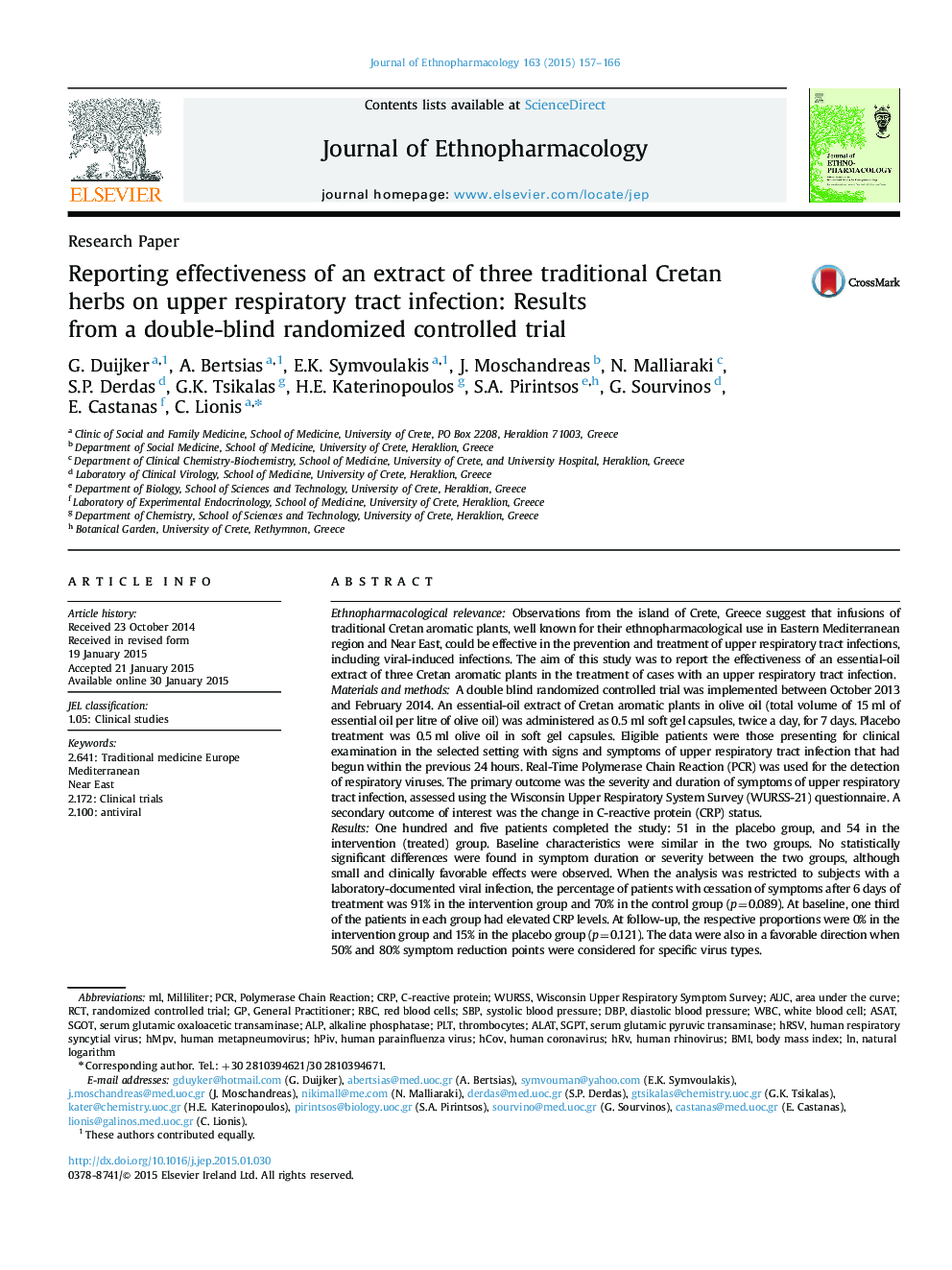| کد مقاله | کد نشریه | سال انتشار | مقاله انگلیسی | نسخه تمام متن |
|---|---|---|---|---|
| 2545029 | 1560399 | 2015 | 10 صفحه PDF | دانلود رایگان |
Ethnopharmacological relevanceObservations from the island of Crete, Greece suggest that infusions of traditional Cretan aromatic plants, well known for their ethnopharmacological use in Eastern Mediterranean region and Near East, could be effective in the prevention and treatment of upper respiratory tract infections, including viral-induced infections. The aim of this study was to report the effectiveness of an essential-oil extract of three Cretan aromatic plants in the treatment of cases with an upper respiratory tract infection.Materials and methodsA double blind randomized controlled trial was implemented between October 2013 and February 2014. An essential-oil extract of Cretan aromatic plants in olive oil (total volume of 15 ml of essential oil per litre of olive oil) was administered as 0.5 ml soft gel capsules, twice a day, for 7 days. Placebo treatment was 0.5 ml olive oil in soft gel capsules. Eligible patients were those presenting for clinical examination in the selected setting with signs and symptoms of upper respiratory tract infection that had begun within the previous 24 hours. Real-Time Polymerase Chain Reaction (PCR) was used for the detection of respiratory viruses. The primary outcome was the severity and duration of symptoms of upper respiratory tract infection, assessed using the Wisconsin Upper Respiratory System Survey (WURSS-21) questionnaire. A secondary outcome of interest was the change in C-reactive protein (CRP) status.ResultsOne hundred and five patients completed the study: 51 in the placebo group, and 54 in the intervention (treated) group. Baseline characteristics were similar in the two groups. No statistically significant differences were found in symptom duration or severity between the two groups, although small and clinically favorable effects were observed. When the analysis was restricted to subjects with a laboratory-documented viral infection, the percentage of patients with cessation of symptoms after 6 days of treatment was 91% in the intervention group and 70% in the control group (p=0.089). At baseline, one third of the patients in each group had elevated CRP levels. At follow-up, the respective proportions were 0% in the intervention group and 15% in the placebo group (p=0.121). The data were also in a favorable direction when 50% and 80% symptom reduction points were considered for specific virus types.ConclusionsCompared with placebo the essential-oil extract of three Cretan aromatic plants provided no detectable statistically significant benefit or harm in the patients with upper respiratory illness, although descriptive differences were identified in favorable direction mainly in the virus-positive population.
Figure optionsDownload high-quality image (198 K)Download as PowerPoint slide
Journal: Journal of Ethnopharmacology - Volume 163, 2 April 2015, Pages 157–166
